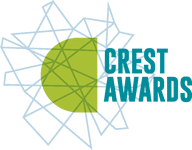Water Slaughter
- The Eco Sisters

- May 18, 2019
- 3 min read
Updated: Jul 23, 2019
Today in our science lesson we did an experiment for the CREST AWARD
LEARNING QUESTION: What is the effect of grey water on plants ?
Grey water is the relatively clean waste water from baths, sinks, washing machines and other kitchen appliances.
(We know, our school made us use PLASTIC cups!)
We wanted to see if we could recycle grey water and use it on plants for minimum waste of water.
We did this experiment several times with different concentrations of grey water (more/ less washing up liquid) and we will see the maximum amount of grey water that plants will healthily grow in.
If you want to try this experiment at home, here are some easy steps:
You will need:
Any liquid soap or washing up liquid
cotton pads
Five (non-plastic please!) cups
water
seeds (we used cress seeds)
A thing that you can measure ml in
A way of labeling your cups
Method:
Put 5 cotton pads at the bottom of 5 cups, one in each (please not plastic!)
Put ten small seeds (we used cress seeds) onto every cotton pad.
Start with 0ml of washing up liquid and 10ml of water. Pour your 10ml of water onto one of your cotton pads.
Then put 2ml of washing up liquid and 8ml of water onto another of your pads.
continue this: 4ml of washing up liquid and 6ml of water, 6ml and 4ml and finally, 8ml and 2ml.
Label each cup with the amounts of washing up liquid and water that are in them.
Expose each cup to an equal amount of sunlight as the seeds grow.
See the maximum concentration of grey water that your seeds can grow healthily in.
You could maybe start recycling your grey water and use it for watering plants :)
Water Wastage:
About 95% of water that enters our homes goes down the drain.
The amount of water we use is constantly growing. An average person uses 127% more water than in 1950.
Many people in the world exist on 3 gallons of water per day or less. We can use that amount in one flush of the toilet.
Over a quarter of all the clean, drinkable water you use in your home is used to flush the toilets.
Running the tap while brushing your teeth can waste 4 gallons of water.
Every minute you spend in a power shower uses up to 17 liters of water!
How can you reduce water wastage?
Turn off taps whenever possible
try to shower with less water
Save up your dirty clothes because washing a full machine load of clothes uses less water and energy than two half loads. This means you save money as well.
Eat less meat. Rearing animals for meat and dairy is incredibly water-intensive. By reducing the amount of meat you eat, you can reduce your water footprint drastically! (it is also kinder to the animals!)
Get a water- saving bag for your toilet
Water outdoor plants in the early morning or at the end of the day to stop water immediately evaporating in sunlight and heat. Water the soil so that the liquid goes straight to the roots, where it is needed.
Catch rainwater with water butts and water plants with that. Water butts save 5,000 liters of water per year.
If you fill up the dishwasher completely each time you run it, you'll use less water than you would doing the washing up.
Fix a dripping tap
Hopefully you follow some of our tips to reduce water waste!
Some of the tips from: https://friendsoftheearth.uk/natural-resources/13-best-ways-save-water-heatwave-or-no-heatwave
- The Eco Sisters xxx :)


















Comments